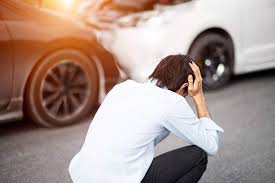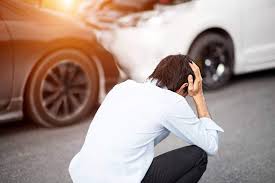Car Accidents Can Cause Serious Ear Injuries and Hearing Loss
Most people associate car accidents with broken bones, whiplash, or head trauma—but what many don’t realize is how devastating an ear injury can be. The ear is a delicate structure, and any damage caused in a crash—whether from blunt force, flying debris, or airbag deployment—can disrupt your hearing, cause chronic pain, and interfere with your ability to work or live comfortably.
At Applebaum Accident & Injury Law, we understand that hearing loss and ear injuries aren’t just physically painful—they can change your life in an instant. If someone else’s negligence caused your injury, you deserve compensation.
How Car Accidents Lead to Ear Injuries
Your ear is made up of three parts: the outer ear, middle ear, and inner ear. Each part plays a crucial role in how sound is processed and how you maintain balance. When trauma strikes—whether it’s a direct hit from the steering wheel, crushed debris, or the force of an airbag—it can disrupt that system.
Common causes of ear trauma in car accidents include:
-
Blunt force impact from a crash
-
Side airbag deployment near the ear
-
Flying debris striking the ear canal
-
Head trauma causing internal damage
In some cases, the loud explosion-like sound of the airbag alone can be enough to cause damage to sensitive inner ear structures, leading to symptoms that range from mild discomfort to total hearing loss.
Recognizing Symptoms of an Ear Injury
Ear injuries can vary in severity, but any of the following symptoms after a car accident should be taken seriously:
-
Hearing loss (temporary or permanent)
-
Ringing or buzzing (tinnitus)
-
Dizziness or vertigo
-
Ear pain or burning sensations
-
Bleeding from the ear
-
Frequent headaches
-
Itching or fullness in the ear
If you’re experiencing any of these symptoms, seek medical attention immediately. Early diagnosis can prevent the condition from worsening and improve your recovery outlook.
What Is Tinnitus and How Does It Relate to Accidents?
Tinnitus—often described as a ringing, hissing, or clicking sound in the ears—is a common result of trauma to the auditory system. It can be triggered by a direct blow to the head, whiplash, or loud impact noise, such as the sound of a deploying airbag.
Tinnitus may also signal a deeper injury, like a traumatic brain injury (TBI). Left untreated, it can lead to sleep problems, anxiety, or ongoing discomfort. It’s crucial to connect your symptoms to the accident if you plan to pursue a legal claim.
Types of Ear Injuries Seen After a Crash
Avulsion Fracture
This occurs when a piece of the ear is torn away due to blunt trauma. It may require reconstructive surgery and can result in permanent disfigurement or scarring.
Ruptured Eardrum
This happens when the thin membrane separating the ear canal and middle ear tears. It can result from sharp impacts or foreign objects entering the ear. Symptoms may include nausea, balance problems, and hearing loss. In many cases, ruptured eardrums heal on their own—but not without medical monitoring and time off work.
Filing a Car Accident Claim for an Ear Injury
In Florida, all drivers are required to carry Personal Injury Protection (PIP) coverage. But this coverage only pays for 80% of necessary medical costs, up to a $10,000 limit. That means if your treatment costs exceed that threshold—as they often do in serious ear injuries—you may need to pursue a claim against the at-fault driver’s insurance.
An Experienced Injury Attorney Can Help
At Applebaum Accident & Injury Law, we’re here to help you hold negligent drivers accountable. We’ll investigate your crash, gather key evidence, and build a case that reflects the full impact of your ear injury.
Our legal team will pursue compensation for:
-
Current and future medical expenses
-
Lost income and reduced earning potential
-
Surgery or long-term treatments
-
Pain and suffering
-
Disability or permanent hearing loss
We’ll handle every detail, from negotiating with insurance adjusters to filing a lawsuit if necessary. While you focus on healing, we focus on justice.
Proving Fault After a Car Accident
To file a successful personal injury claim in Florida, we must prove the other driver was at fault. That requires strong evidence, including:
-
Police and crash reports
-
Medical documentation
-
Eyewitness accounts
-
Photos and video from the scene
-
Surveillance or dash cam footage
-
Testimony from accident reconstruction experts
Our team has the resources and experience to collect this evidence and present it effectively.
Let Applebaum Accident & Injury Law Stand Up for You
Hearing loss and ear injuries may not be visible to the eye—but they are real, life-altering injuries that deserve serious attention. If you or a loved one suffered an ear injury in a car accident caused by someone else’s carelessness, we’re ready to fight for the compensation you deserve.
Call us today (855)  Call-Paul or fill out our online contact form to schedule a , no-obligation consultation. You don’t pay unless we win your case.
Call-Paul or fill out our online contact form to schedule a , no-obligation consultation. You don’t pay unless we win your case.
Applebaum Accident & Injury Law
Where Injury Victims Come First.




